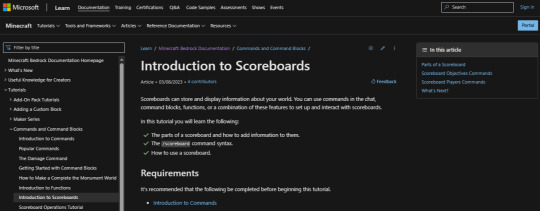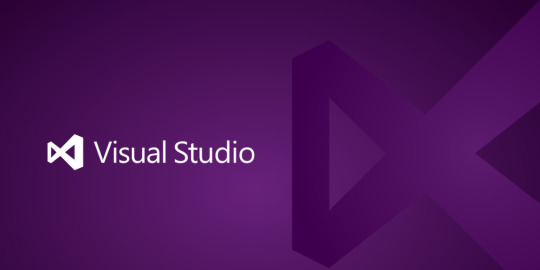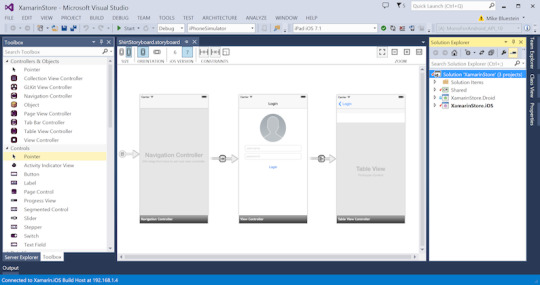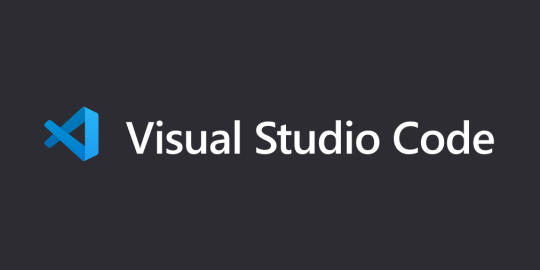#code.tryperse
Explore tagged Tumblr posts
Text
Thanks for the tag, @a-fox-studies! I don’t really know that many codeblrs, so I’m leaving this as an open tag for others.
At what point in your life did you decide that the world of computers was the one for you?
I wanted to make games long before I knew what it takes to make one. All I knew is that I enjoyed games, and that I wanted to make something enjoyable too. So I guess, from the start, I was going to get hooked to computers one way or another. Knowing past me, though, I would not have gone this path if I found programming too hard, so the incremental steps I was given was a factor.
Back in 8th grade, we had to take C++ in our computer subject. It was just a general computer subject but it was nothing like I had taken in earlier years. We didn’t glance at any of the STL aside from strings and iostream (for stdin/stdout), so it was really enjoyable for me. Plus, we were spared from pointers because we didn’t have enough time for the school year to discuss any of those.
The next year, I was invited by our teacher to join the robotics team. We didn’t do well, but I liked that time of my studies. We went to numerous seminars, all of which I enjoyed (especially that time where we controlled a robot with our phones; that was a blast making it roam all around the room). I tried to make a piezo electric speaker sing, but I didn’t like how the piezo sounded, so I stopped after a few notes. We tried to make an RFID reader work for a competition. It worked in practice but, without changing anything in our setup, failed during presentation. Thankfully, it wasn’t an on-stage presentation, so only the judges (and the teams beside us) saw us trying to figure out why our working code wasn’t working.
I tried C# on my own time. I asked our computer teacher about the programming language we use for the Arduino and he said “C#”. In hindsight, he probably didn’t know as well, but thought that it looked similar to C#. It challenged me, which was my main motivation for learning. However, it wasn’t too hard that I dropped it. My previous experience with C (C++ implies STL) meant that I knew the syntax. My experience with Arduino meant that strange problems weren’t that strange to me anymore. Plus, using Visual Studio made it easy for me to transfer my idea to code.
From then on, I knew that I wanted to pursue this path. I continued learning C#, explored other languages, and made some of my own packages, modules, and applications. I have yet to create a game of my own, but that will come when I can finally force myself to make sprite assets.
7 notes
·
View notes
Text
I'm all for AI being used to help people in what they do. Asking ChatGPT to write your essays is not having AI help you with something. That is delegating a task to an AI. That will fix your short-term problem of having to make an essay. However, you will miss out on what essay writing is meant to do for you. Essay writing isn't about the end product (though, that's still a big factor). It's about the process itself. It's about how you approach the topic and how you can convert an idea into writing. Generative AI can help you with that, but not by writing the entire essay for you.
Also, I don't like AI detection tools being used as an argument against AI. Their effectiveness depends on how many students actually submit AI generated work for their studies. Assuming a 100% detection rate for actual AI generated submissions, a 10% false positive rate means that at least 9% of submissions must be AI generated for the true positives to outnumber the false positives. I don't know what percent of submissions are AI generated, but 9% of all submissions is an extremely large percentage. Solution for this claim is in the image below.

I'd like to have great AI detection tools. But having an aggressive detection mechanism does not help anyone. It makes positive results questionable at best and dismissible at worst. At its current state, AI detection tools aren't as great as people make them out to be.
I feel like the only person not tempted to use ChatGPT like it doesn’t even occur to me as an option
#code.tryperse#perseverant-writes#for the record#i use ai for both writing and coding#using them to help in worldbuilding is great#but i would never have it write a story for me#i tried. it was mediocre
117K notes
·
View notes
Text
An Intro Post
So much to do... so little time...
About Me
Howdy! The name's Perseverant Determination, but that's exteremely long. Feel free to call me anything, though Perse will do just fine. You might also see me in other places under other names, especially EF159. Feel free to use that as well.
I do a lot of things, which means that this main blog will have an assortment of topics. I create beatmaps for VSRGs, write stories, and code personal programs. I'll tag my posts as shown below, so you can filter my posts.
#the-void's-determination: For all stuff related to writing
#code.tryperse: For all stuff related to programming
#perse-the-beat: For all stuff related to rhythm games and beatmapping
If you have questions about a certain topic, feel free to ask me. While I'm more likely to answer programming-related questions, I'll try to do my best to give you satisfactory answers.
The Void's Determination
I like writing sci-fi, though lately, I find myself preferring fantasy more. I've been writing for a few years and have a few short stories on r/WritingPrompts, but those are years old now and they're not that good, in my opinion. If you can find them somehow, good for you. I'm not linking to them.
Projects
Days of Moonlight Riddles
I play Sky, that game of Light. Riddles, I see with great delight. I might not solve them all the time. I might be wrong but still, I'll try.
Along with Duet's last two weeks, The lanterns cast, for all to see. In each of them, a riddle held. Answer three — three tickets left.
And thus, to bring my prose to test, A riddle a day; I bring my best. If you so seek to answer those, Look below and have your go.
Riddles: [1] [2] [3] [4] [5] [6] [7] [8] [9] [10] [11] [12] [13] [14]
Ethereal Dreams (currently being reworked from the ground up)
Code.TryPerse()
I have a side blog for this now!
I consider myself experienced in C#, though I've also practiced a bit of C/C++, Java, Javascript/Typescript, Python, and Lua. I don't do much with that knowledge though. I just code some stuff that can help me with random trivial problems. I want to be a game developer but that's going to take time, what with me doing all this writing and beatmapping.
10 notes
·
View notes
Text

Would have been nice to see this mistake much, much earlier.
#code.tryperse#codeblr#programming#now i have 160 million entries to fix#hopefully it doesn't take a week to fix
3 notes
·
View notes
Text
I keep seeing all these posts about ChatGPT and stories and I'm just sitting here with this post I'm still working on because holy fuck this thing is so deep. Just a quick note to those who wish to know what OpenAI used to train ChatGPT.
The Common Crawl dataset that OpenAI used to pre-train GPT-3 (and ChatGPT by extension) is named CC-MAIN-2021-39. This is the dataset that Common Crawl released in September 2021, which matches with the knowledge cut-off date on ChatGPT. CC-MAIN-2021-39 contains 97 versions of Ao3's homepage all from different times.
Since CC datasets are notorious for being extremely low quality when it comes to training data, OpenAI filtered CC-MAIN-2021-39 through a classifier based on WebText, a dataset that OpenAI used to train GPT-2. This dataset was made from a web scrape that OpenAI developed. To scrape the web for WebText, they used Reddit as a starting point, scraping all outbound links from it which had garnered at least 3 karma. After that, they only scraped web pages which have been "curated/filtered by humans".
I urge everyone to have a deeper look at how ChatGPT works. It doesn't matter if you're for or against AI. Look at how it works because there's a whole lot of misinformation about this thing.
0 notes
Text
Howdy! This blog is a mix of three topics (four if reblogs are included), but you might find the occasional programming post whenever I feel like making one.
Hope you have a wonderful time learning how to code!
HELLO WORLD

I'm learning how to code!
Call me Sun. I love some of the programming blogs here(I don't think we have enough though) so I decided to make my own. I thought it would be fun. Tumblr has wholesome communities so theres that lol.
I will track my progress here and hopefully connect with other coding blogs ! Feel free to message me about anything and connect !
99 notes
·
View notes
Text
I have managed to install enough emulators on my phone to make it run LOVE2D.
Frame rate sucks, because of course it will, but it should work as a development platform.
0 notes
Text
It's weird seeing Minecraft scoreboard documentation written on the same site where I look at C# documentation, but here we are. And it actually seems useful.

#code.tryperse#sure it's for mc bedrock#but mc java and mc bedrock scoreboards work similarly to each other#i can learn a thing or two from this
1 note
·
View note
Text

Indexing 160 million entries turns out to take a long time. Who would have guessed?
0 notes
Text
With April 1st coming up in two weeks, it might be the time to start figuring out how to make a websocket client.
Just in case.
0 notes
Text
That post I made about Visual Studio just made me remember why I initially chose Visual Studio over Rider.
I might try Visual Studio with Resharper to get Rider's analysis capacity with Visual Studio's clean UI.
1 note
·
View note
Text

That can’t be good.
0 notes
Text
For the most part, I would consider this correct. However, I think you missed some key parts about Visual Studio especially with how it is used. I've used it before (as someone who uses primarily C#) and while I use Rider these days, I don't think Visual Studio has changed much for what I remember to be incorrect.
TL;DR: Visual Studio is an IDE for .NET while VSCode, although for HTML/CSS/Javascript, can be extended to other languages. Both provide debugging capabilities, Version Control System (VCS) integration, and other development tools. However, Visual Studio provides additional development tools like a memory profiler, package manager, etc.
If you're not coding for .NET or just looking to quickly edit code, VSCode is better. Else, Visual Studio will provide with great development tools.
Summary of Visual Studio
Visual Studio is an IDE initially made for Windows development. Because of this, it supports .NET (which uses C#, F#, and Visual Basic) and C++. However, .NET has been moving to support cross-platform runtime, especially with Multiplatform App UI. ASP.NET also supports web development which means support for HTML (and, consequently, Javascript and CSS). It also has Python support under the Web Development category but I'm not sure exactly why. Because of that, Visual Studio is mainly a .NET IDE with some C++, HTML, Javascript/Typescript, CSS, and Python support.
This means that, if you are developing any .NET application, no matter the size, Visual Studio will provide you with debugging tools such as a debugger, memory profiler, etc. I've used it before for some basic console applications. I've tried using it to create some GUI applications. It doesn't really have to be an enterprise-level application before you start using Visual Studio. Just a simple "Hello world" will do, though if you do plan to use Visual Studio, take into account that it does not start fast. You will be waiting for it to load your solution for quite a while.
All in all, if you're trying to create anything .NET, you should probably use Visual Studio.
Summary of Visual Studio Code
Visual Studio Code (often abbreviated VSCode) is a code editor that can also be an IDE, albeit a lightweight one at that. It has out-of-the-box support for Javascript/Typescript, HTML, and CSS. VSCode has an API that can allow extensions to provide support for other languages. Because of this, you can use VSCode for theoretically any programming language out there.
I call VSCode an IDE because, with the right extensions, VSCode can do pretty much anything a lightweight IDE can. If you have a debugger for your programming language, you can use it to get debugging support in VSCode. You can use breakpoints, pause execution, and anything that a debugging program can provide you. It also has VCS integration built-in, so you can use Git or whatever VCS you use alongside it.
If you're not making a .NET application or just looking to quickly edit code, you should probably use VSCode.
Visual Studio vs Visual Studio Code

Today, I want to talk about a topic that often confuses many developers and me including when I first started: the difference between Visual Studio and Visual Studio Code. Similar names, and the same logo shape but what makes the two different? Let's talk about it~! ✨

Visual Studio and Visual Studio Code (often abbreviated as VS and VS Code, respectively) are two distinct development environments both made by Microsoft, and both aimed at providing developers with the tools they need to build cool applications!


Visual Studio
Visual Studio is a full-featured integrated development environment (IDE) that helps people create other computer programs. It has a lot of different tools that can help with things like writing code, finding mistakes in code, testing programs, and putting the finished program out for other people to use.
Visual Studio can work with different programming languages like C#, VB.NET, F# and C++. It might take some time to learn how to use Visual Studio because it has a lot of features, but once you get the hang of it, you'll be able to create really cool and complex computer programs with it.


Visual Studio Code
Visual Studio Code is a lightweight, open-source code editor that provides developers with a customizable environment for building and debugging applications. It supports a wide range of programming languages, including JavaScript, TypeScript, Python, and Java.
The interface of VS Code is intuitive and straightforward, making it easy for new users to start working with it quickly. Very beginner-programmer-friendly, in my opinion.

Key Differences
Visual Studio is an IDE
VS Code is a code editor
Visual Studio is primarily designed for building large-scale applications
VS Code is geared towards web development, scripting, and smaller projects
Visual Studio has an extensive range of extensions and add-ons available to expand its capabilities
VS Code has a vast library of free and open-source extensions available in its marketplace, making it a flexible and cost-effective option
Visual Studio Code is known for its lightweight and speedy performance. It consumes fewer resources than Visual Studio, making it an excellent option for developers who are working on lower-end machines

All this info!! Which to pick for my next project?
It depends on what you're making and how big and complicated it is! 🤔
If you're making something really big project, you'll probably want to use Visual Studio because it has a lot of tools to help you. But if you're making something smaller or working on a website, then Visual Studio Code might be better for you.
At the end of the day, it's up to you to decide which one you prefer! 😉👍🏾

That's all and thank you for reading! Hope you learn something new! 💻🙌🏾💗
122 notes
·
View notes
Text
For context, this puzzle was marked as an easy puzzle but, for some reason, I decided to solve the thing in C.

#code.tryperse#the c programming language#so many scansets#somehow i only hit a segfault once#and that's only because i didn't know how strtok worked#string parsing is something else though
0 notes
Text
Who would have known that porting a mod would be this difficult?
0 notes
